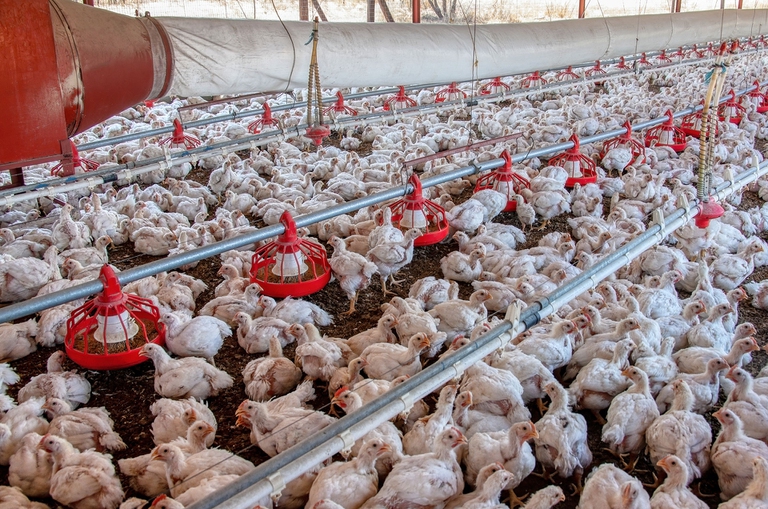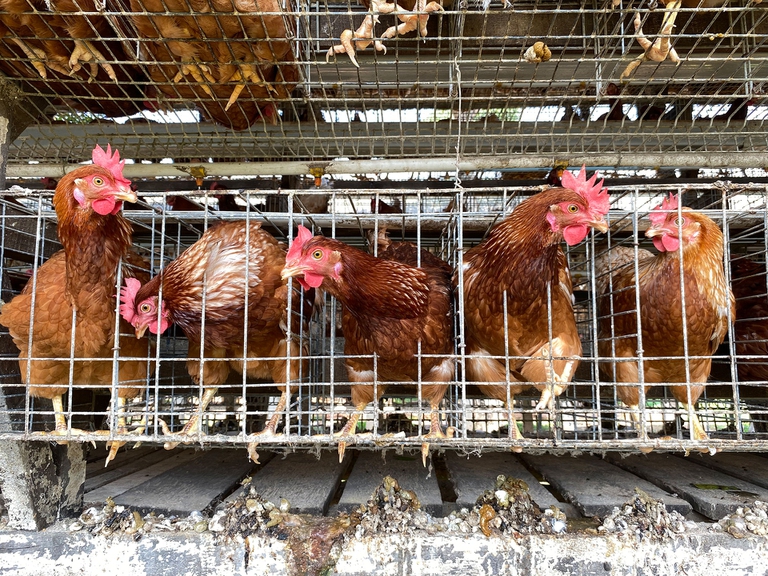https://www.lifegate.it/fast-food-polli-sfruttamento
- |
Every year in Italy more than 1,000 are slaughtered 550 million chickens. Over ninety percent of these animals belong to the so-called "fast-growing" breeds, those commercial poultry hybrids genetically selected to achieve functional characteristics for sale for human consumption, at the lowest cost and in the shortest time possible.
Since 2010, theEuropean Food Safety Authority (EFSA) However, it noted that the serious health problems affecting these chickens are explicitly linked to rapid increase of their weight, desired and encouraged by companies in the food sector.As reported by the investigations of Animal Equality, In fact, genetic selection on chickens raised for their meat causes heart attacks, respiratory failure, congenital diseases and chronic conditions such as leg deformities in these delicate animals.

How chickens are treated
The big brands also contribute largely to perpetuating this wicked trend international fast food.A new report published by the association World animal protection, in collaboration with Animal Equality, denounces like the multinationals Burger King, McDonald's And Starbucks in Italy they have in fact only officially joined public commitments to protect the welfare of chickens, without ever making actual progress in that direction.
The reference public commitment to which many large brands have formally joined is European chicken commitment, a unified request signed by over thirty European NGOs to improve breeding and slaughter standards in the commercial chicken supply chain.Among the measures that this document asks companies to adopt is that of using chicken breeds in their supply chains slow growth, as well as making sure the chickens have it space necessary to fully express one's natural behaviors on farms.
Since 2019, World animal protection commissions the report every year The pecking order to track the progress of major fast food brands globally.Companies are evaluated through publicly available information based on two fundamental pillars:the voice icommitments and objectives and the voice performance reporting. The first reflects the scope and completeness of a company's commitment to chicken welfare based on the specific criteria outlined in the European chicken commitment for EU companies, the second reflects the extent to which a company has implemented its commitments in relation to the criteria of the same document.
The report evaluates international companies and brands on their approach to the welfare of chickens in their supply chains.In the 2022 report However, no company received an overall score of 1 (leading), 2 (good), or even 3 (developing).

THE'89 percent of companies instead received a level 6 score, very poor, having made no commitments regarding the welfare of chickens raised for their meat.This means that most of the chicken meat served in these well-known fast food restaurants does not take animal health into account.Many of these in fact live in environments unhealthy, crowded and without natural light, suffering severe lameness and skin lesions.
Companies have the power to reduce the suffering of billions of chickens if consumers increasingly hold producers to account how animals are treated used in their supply chains.In the current almost total silence, those who pay the highest price are only the animals condemned to suffer inside their own bodies.
